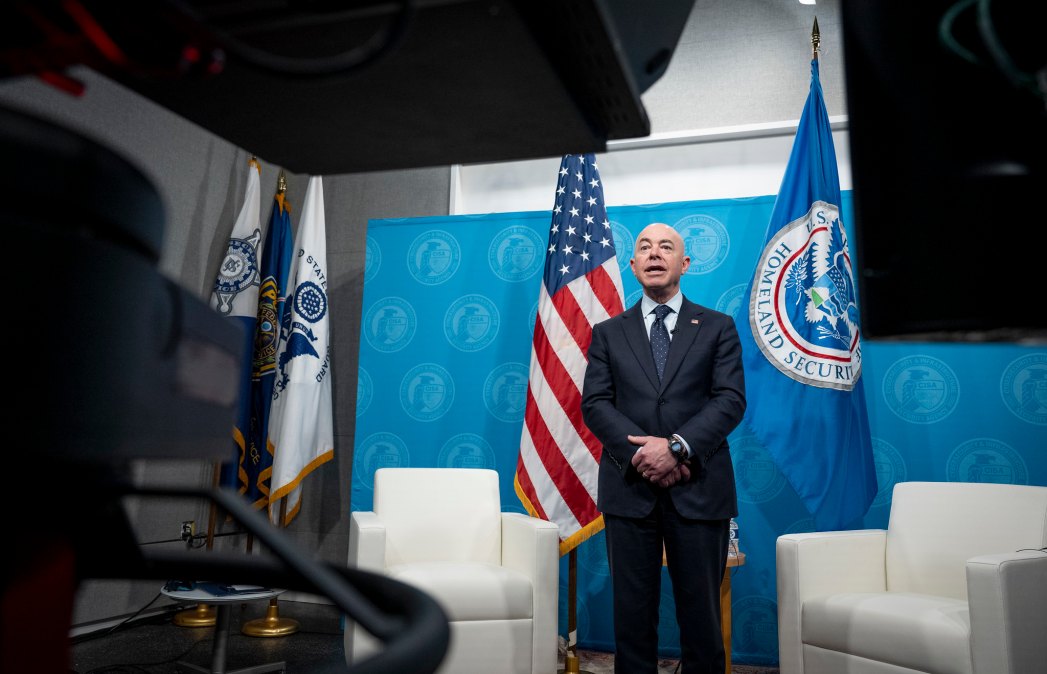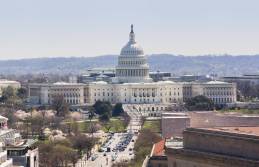DHS to hire 200 more cyber pros as Biden administration grapples with hacking threats

The Department of Homeland Security announced on Wednesday that it intends to hire 200 new cybersecurity professionals by July as the Biden administration aims to curb ransomware attacks affecting U.S. corporations, as well as foreign espionage operations.
In a speech Wednesday, Homeland Security Secretary Alejandro Mayorkas said the cyber recruiting was part of “the most significant hiring initiative” that DHS has undertaken in its 18-year history.
“We are going to be recruiting talent that is already developed, we’re going to be helping develop the talent that is just about to bloom and we’re going to be investing in the seeds to grow the talent of the future,” Mayorkas said at a U.S. Chamber of Commerce event.
Half of the new jobs will be with DHS’s Cybersecurity and Infrastructure Security Agency and the other half will be with other DHS agencies that work on cybersecurity, the department said in a press release.
CISA, a two-year-old agency that is tasked with dealing with a range of hacking threats against federal networks and the private sector, had some 2,150 employees in the 2020 fiscal year and a budget of $2 billion. Lawmakers and administration officials have agreed that the agency needs more money and people to live up to its mission.
The White House has asked Congress for an additional $110 million for DHS’s cybersecurity work for the 2022 fiscal year, compared to the previous year, on top of a $650 million boost that CISA received from the coronavirus relief package.
The full list of jobs that DHS is aiming to fill was not immediately available, though CISA already advertises for multiple “IT specialist” positions that support incident response and other key cybersecurity work.
The hiring blitz comes as federal, state and local government officials confront what Mayorkas has called an “epidemic” of ransomware attacks from various cybercriminals gangs. DHS will likely need additional personnel to help a new “cyber response and recovery fund” the department is proposing to deliver resources to state and local governments dealing with hacking incidents.
CISA officials also had their hands full in responding to at least nine breaches of federal agencies by alleged Russian hackers in a spying campaign that exploited software made by SolarWinds and other vendors. Agency officials have said they are trying to bolster their incident response capabilities, a goal that the hiring initiative could support.
Some cybersecurity professionals have complained that the federal government’s strict hiring process, which includes bureaucratic background checks, excludes talented computer specialists who may have partaken in occasional drug use or dabbled in cybercrime in past lives. President Joe Biden addressed the issue in February in signing a memorandum that pledged to “expand the pathways to recruit and hire new employees from all segments of our society.”
With no shortage of malicious cyber activity to defend against, there has also been a push in corporate America to find cybersecurity specialists. As of June 2020, there were 348,082 open positions in the field, according to data from CyberVista and the International Consortium of Minority Cybersecurity Professionals.




